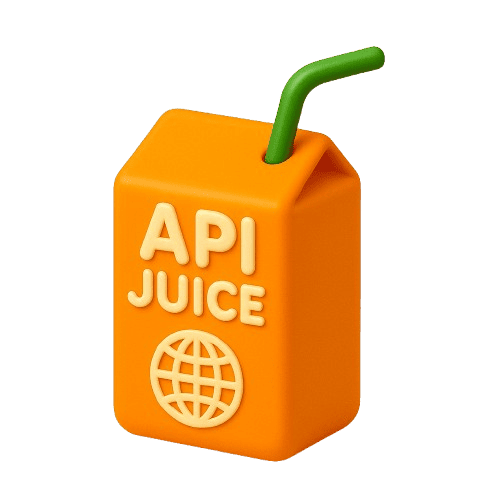Product Introduction
- apiJuice is a platform that enables users to generate custom APIs for extracting structured data from any website by simply providing a URL and describing requirements in plain English. It uses AI to analyze website structures and automatically create APIs that deliver clean JSON data through REST endpoints, webhooks, or integrations like n8n nodes.
- The core value of apiJuice lies in eliminating manual coding and infrastructure setup for web scraping, allowing users to transform dynamic or unstructured web content into usable APIs within seconds. It prioritizes speed, reliability, and adaptability to website changes, making data extraction accessible to non-technical users while offering advanced customization for developers.
Main Features
- apiJuice employs AI-driven extraction logic that dynamically interprets website layouts, including JavaScript-rendered content, to accurately identify and retrieve specified data points such as text, tables, or metadata. The system auto-adjusts to minor structural changes in target websites, reducing maintenance overhead.
- Users receive instant API endpoints with millisecond response times, bypassing traditional browser-based scraping methods. The infrastructure leverages serverless architecture and edge caching to ensure consistent uptime and sub-100ms data delivery for high-frequency requests.
- The platform supports multiple output formats (JSON, CSV) and integration methods, including direct API calls, scheduled webhooks, and prebuilt connectors for automation tools like n8n. Custom dashboards and embedded apps enable real-time data visualization without additional development.
Problems Solved
- apiJuice addresses the complexity of manual web scraping, which typically requires writing site-specific XPath/CSS selectors, handling pagination, and maintaining scrapers amid frequent website updates. Traditional methods often fail with JavaScript-heavy sites or require resource-intensive headless browsers.
- The product serves developers needing rapid API prototypes, data teams aggregating information from multiple sources, and businesses requiring real-time competitor price tracking or content aggregation without dedicated DevOps resources.
- Typical use cases include extracting product catalogs for price comparison engines, monitoring news/article updates across multiple domains, aggregating job postings from career sites, and feeding dynamic web data into machine learning pipelines or business intelligence tools.
Unique Advantages
- Unlike static web scrapers requiring code updates for site changes, apiJuice uses machine learning to detect and adapt to layout modifications, maintaining data accuracy without user intervention. Competitors often rely on fixed selectors that break with minor HTML changes.
- The platform uniquely combines no-code AI training (users correct extraction errors via natural language feedback) with enterprise-grade features like OAuth support, rate limiting, and SOC 2-compliant data handling.
- apiJuice outperforms alternatives through its hybrid parsing engine, which blends DOM analysis, visual rendering patterns, and semantic context recognition to handle both modern SPAs and legacy HTML sites with equal efficiency.
Frequently Asked Questions (FAQ)
- How does apiJuice handle websites with JavaScript-rendered content? The platform executes JavaScript in a headless environment during initial setup to build a complete DOM model, then uses static analysis for subsequent requests to maintain speed while preserving dynamic content accuracy.
- What authentication methods are supported for API access? apiJuice provides API keys with scoped permissions, OAuth 2.0 for third-party integrations, and IP whitelisting. All data transmissions enforce TLS 1.3 encryption.
- Can I schedule automatic data refreshes? Yes, users configure extraction intervals from 1 minute to 30 days, with options to trigger updates via webhooks or integrate with cron-based schedulers in tools like Zapier.
- How are API rate limits managed? Free tier includes 100 requests/minute with burst capacity up to 500 RPM, while enterprise plans offer customizable throttling rules and SLA-backed throughput guarantees.
- Does the AI retrain extractors after website updates? The system automatically reruns structural analysis on every extraction attempt, applying incremental learning from user validation feedback to improve selector accuracy over time.
